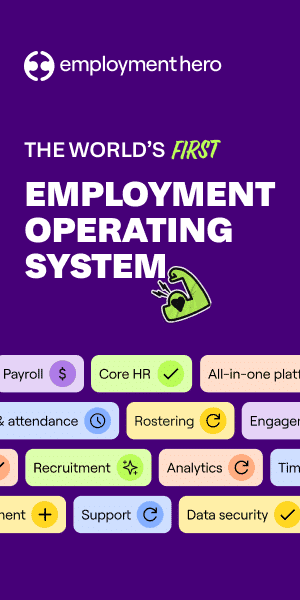As landlords in South Australia, one of our most important responsibilities is to correctly manage rental bonds. The rental bond system exists to safeguard both landlords and tenants. It is not simply a payment you collect and hold; it is a deposit that must be managed within a strict legal framework. The bond protects us if the tenant fails to meet obligations like paying rent, maintaining the property, or leaving it clean when they move out. At the same time, the bond protects the tenant by being lodged securely with Consumer and Business Services (CBS), ensuring the funds are returned fairly if they meet their obligations.
In this extended guide, we will explore everything you need to know about rental bonds in South Australia. We will explain the purpose of the bond, outline the rules you must follow, show how to lodge and manage bonds using Residential Bonds Online, and discuss how disputes are handled. We will also provide practical examples and tips that you can use to protect your position as a landlord. By the end, you will have a full understanding of the bond process in SA and the confidence to manage it properly.
Click To View Our Rental PackagesWhat is a Rental Bond?
A rental bond is a form of security deposit that tenants pay before moving into a property. As landlords, we are legally entitled to collect this deposit at the start of a tenancy. The purpose is to provide financial protection if tenants breach their lease. Examples include unpaid rent, damage to the property beyond ordinary wear and tear, or failing to clean the premises adequately upon leaving.
It is important to remember that the bond is not a fee or a penalty. It is not income for you, and it cannot be used during the tenancy. The bond is held independently by CBS and released at the end of the tenancy based on agreement between both parties or a legal ruling. This arrangement ensures that the system is fair and transparent, protecting landlords from loss while also protecting tenants from unfair treatment.
Rules for Rental Bonds in South Australia
The rules around rental bonds in South Australia are set out in the Residential Tenancies Act 1995. As landlords, we must comply with these requirements. The main rules are:
1. If the weekly rent is $250 or less, you can charge a maximum of two weeks’ rent as bond. This helps keep renting affordable for tenants on lower incomes.
2. If the weekly rent is above $250, you can charge up to four weeks’ rent as bond. This is the standard arrangement for most residential tenancies in South Australia.
3. If the weekly rent is more than $800, you may request a higher bond, reflecting the increased value and potential risk associated with high-end rentals.
4. Once you collect the bond, you must lodge it with CBS. If you are a registered landlord or agent, you must lodge within two weeks. If you are self-managing, you have up to four weeks. Lodgement is done through Residential Bonds Online or by submitting paper forms, but the online system is faster and more reliable.
5. You must provide the tenant with a receipt for the bond and ensure they receive confirmation from CBS once it is lodged. This ensures transparency and gives tenants confidence that their money has been handled correctly.
Failure to follow these rules can result in penalties and orders made against you by the South Australian Civil and Administrative Tribunal (SACAT). By understanding and complying with the law, you avoid problems and protect your rights as a landlord.
Lodging Bonds Through Residential Bonds Online
Residential Bonds Online (RBO) is the official CBS platform for managing bonds. Using RBO allows us to lodge, manage, and refund bonds electronically. It is efficient, transparent, and fully compliant with the law. More and more landlords are moving to RBO because it reduces paperwork and ensures that both tenants and landlords can track the process easily.
Here is how it works:
– You register with RBO as a landlord or property manager.
– When you receive a bond payment from a tenant, you log into the system and lodge the payment electronically.
– CBS holds the funds securely for the duration of the tenancy.
– Both you and the tenant receive confirmation of the lodgement, which provides transparency and proof that the bond is managed correctly.
If you are ready to lodge a bond, you can do so directly here: Lodge a Rental Bond Online.
Managing the Bond During Tenancy
Once the bond has been lodged, it remains with CBS until the tenancy ends. As landlords, we cannot access the funds during this time unless both parties agree to a partial refund or a claim is made through the proper channels. The bond acts as neutral security, held independently to ensure fairness.
Our responsibility during the tenancy is to maintain clear and accurate records. This includes:
– Entry condition reports with photographs.
– Regular inspection reports.
– Records of rent payments.
– Invoices or receipts for repairs and maintenance.
These documents will be essential if you need to make a claim at the end of the tenancy. They also provide evidence to SACAT if a dispute arises.
Bond Claims at the End of Tenancy
When the tenancy ends, the bond must be finalised. If the tenant has met all obligations, the bond should be returned to them in full. If not, you may lodge a claim for unpaid rent, cleaning, repairs, or other valid costs. The process works like this:
– You lodge a claim with CBS through Residential Bonds Online.
– The tenant is notified of your claim and has an opportunity to respond.
– If the tenant agrees, the bond is distributed accordingly.
– If the tenant disputes the claim, the matter is referred to SACAT, where both parties present their evidence.
This ensures fairness and transparency. You cannot simply keep the bond; you must provide justification and evidence for your claim.
Examples of Bond Claims
Examples of legitimate claims include:
– Unpaid rent for the final weeks of tenancy.
– Damage to fixtures, carpets, or walls beyond ordinary wear and tear.
– Failure to clean the property adequately, requiring professional cleaning.
– Abandoned rubbish or garden neglect requiring professional services.
In all cases, your claim must be reasonable and supported by evidence.
Tips for Protecting Your Position as a Landlord
To make the most of the bond system and protect your interests, follow these practices:
1. Complete detailed entry and exit reports with photos and notes.
2. Carry out regular inspections and communicate issues with tenants early.
3. Keep all records, invoices, and receipts related to the tenancy.
4. Be fair and transparent in your dealings. If tenants understand what is expected, disputes are less likely.
5. Always use Residential Bonds Online. It provides a secure, accessible, and efficient way to manage bonds.
Frequently Asked Questions
How much bond can I ask for in SA?
If weekly rent is $250 or less, you can request up to two weeks’ rent. If the weekly rent is more than $250, you can request up to four weeks’ rent. For rent above $800, a higher bond may be permitted.
Who holds the bond money?
Consumer and Business Services holds the bond on behalf of both landlords and tenants. The bond cannot be kept by you directly.
Can I lodge the bond online?
Yes. Residential Bonds Online is the official CBS system for lodging and managing bonds. It is the fastest and most secure way to comply with the law.
How do I make a claim on the bond?
You can lodge a claim through RBO when the tenancy ends. If the tenant agrees, the money is released. If they dispute it, SACAT will decide.
What happens if I fail to lodge the bond?
If you do not lodge the bond within the required timeframe, you may face fines and legal penalties. Tenants can also report non-compliance to CBS or SACAT.
Final Thoughts
As landlords in South Australia, managing rental bonds correctly is vital. Bonds protect our investments and provide tenants with assurance that their money is safe. By following the law, lodging bonds with CBS, using Residential Bonds Online, and keeping thorough records, you can manage bonds fairly and effectively. With the right approach, the system creates a balanced relationship that benefits both you and your tenants, ensuring your rental arrangements run smoothly from beginning to end.


